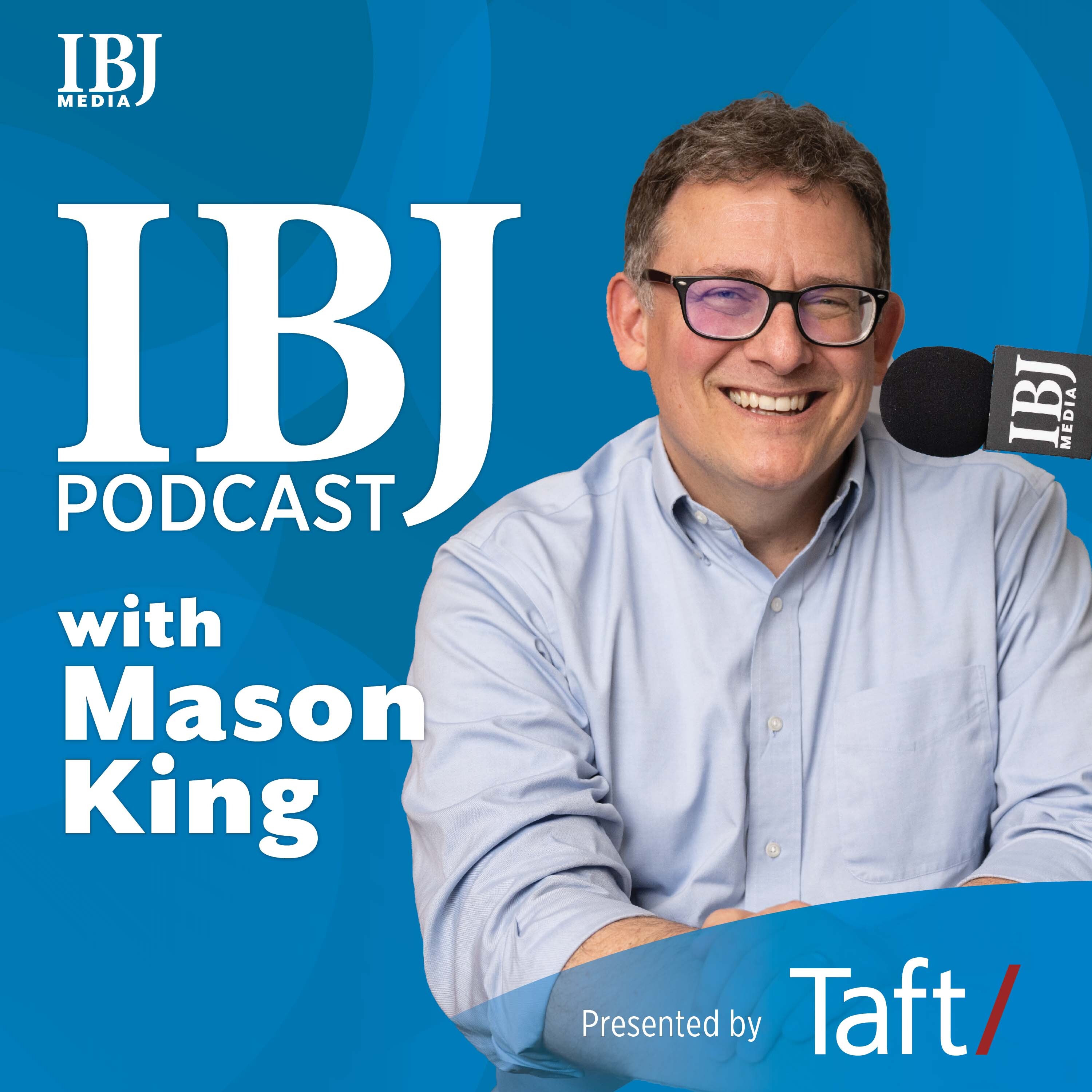Episodes
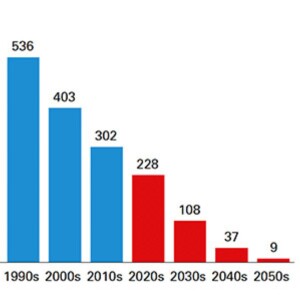
Sunday Aug 25, 2024
Sunday Aug 25, 2024
Indiana University demographers released projections last week that show the state's population growth cratering until it hits near-zero growth by the 2050s. In fact, more than two-thirds of Indiana’s 92 counties will see losses in population over the next 30 years, according to the estimates from the Indiana Business Research Center at the Indiana University Kelley School of Business. This can be explained by a grim but relatively simple phenomenon: The number of deaths in the state will begin surpassing the number of births in the 2040s. At that point, migration from other areas will account for all of Indiana’s population growth. Meager population growth would have serious repercussions for our labor force and economy, putting pressure on officials across the state to make Indiana as appealing a place to live as possible.
The counties with large cities will be the exceptions. The 11-county Indianapolis metro area is expected to add residents at a relatively robust clip over several decades. In fact, the metro area is projected to hit about 2,497,000 residents by 2050—an increase of nearly 405,000 from 2020. And the state’s five fastest-growing counties will be suburban Indianapolis counties. The question now is, “What should public officials on the city, county and state level do with this information?” Matt Kinghorn, the principal researcher on the IBRC study, is our guest this week to break down the numbers, explain what’s behind these expected trends, dig into the challenges facing the state and provide a preview for a tale of two different Indianas.
The IBJ Podcast is brought to you by Taft.
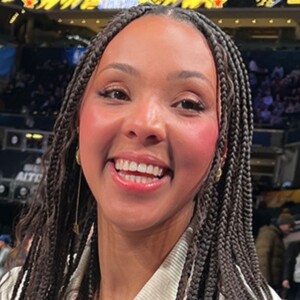
Sunday Aug 18, 2024
Fever emcee’s story of getting the gig is the ultimate in moxie, initiative
Sunday Aug 18, 2024
Sunday Aug 18, 2024
You easily could argue that the biggest business newsmaker of the year so far in Indianapolis is the Indiana Fever. It started with drafting Caitlin Clark in April, leading to an explosion of interest in women’s professional basketball with sold-out stadiums and best-ever TV ratings for the spor—and now the news that the Fever will host the 2025 WNBA All-Star Game. Olivia West has had a front row seat for the Fever phenomenon (not that she ever sits down) as one of the in-arena emcees for Fever games—one of the folks who hype up the crowd, host games for fans during breaks in play and feature Fever sponsors. This is her second season in the role after essentially talking the Fever into giving her the job. Pacers Sports & Entertainment, which owns the Fever, then was quick to give her the same role for Indiana Pacers games last season. What’s even more impressive is that her work for the Pacers and Fever is a side gig. Her full-time day job is with Eli Lilly and Co. as a DEI program consultant.
Olivia West is a classic up-and-comer, having cut her teeth as an entrepreneur as a 4-H member in La Porte Indiana before attending Purdue University for agricultural economics and then branching into marketing. She’s a big proponent of finding and leveraging your particular gifts, which for her means excelling in personal communication, networking and refusing to accept “no” as an answer. She is among the young leaders IBJ chose for its “20 In Their Twenties” Class of 2024 last week, and she’s our guest this week on the IBJ Podcast in a happy coincidence, given the news about the WNBA All-Star Game. Her mindset of opportunity meeting persistence is perhaps best captured in her story of how she became an emcee for the Fever. She also shares the many practical lessons she learned showing and selling pigs in La Porte, as well as playing basketball. And she discusses the evolution of the Fever this season and the importance of believing in your own greatness.
The IBJ Podcast is brought to you by Taft.
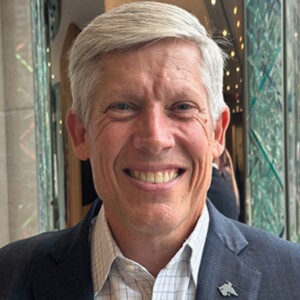
Sunday Aug 11, 2024
Sunday Aug 11, 2024
One easily could argue that the most significant real estate development in central Indiana from the last 15 years was the JW Marriott Indianapolis, which opened in February 2011. With more than 1,000 rooms over 34 glass-encased floors, it instantly became the tallest and largest hotel in central Indiana. It also played an outsized role in the city’s strategy to attract more convention and event business. You’ll recall that Lucas Oil Stadium was completed in 2008. The new Indianapolis International Airport terminal debuted in 2008. Also in 2008, the Indiana Convention Center started a major expansion, which was completed in 2011. With the JW Marriott added to the mix, the city could go a long way to realizing its ambitions of hosting a larger variety of meetings and prominent events. It remains the Big Kahuna of downtown hotels while also serving as the city’s largest billboard—a canvas for hundred-foot graphics commemorating special events.
Phil Ray has been general manager of the JW Marriott for the last decade and had leadership roles in other major local hotels going back to 2003. He has a 34-story perspective on how the city’s status as a convention and tourism destination has evolved, as well as the latest efforts to attract more convention business. Ray and IBJ Podcast host Mason King have a wide-ranging discussion this week on topics such as the new taxing district the city is considering for beautification and public safety efforts downtown, and the city-funded construction of an 800-room hotel that would become the JW Marriott’s biggest competitor. They also discuss how the JW Marriott weathered the first year of pandemic and then became a key player in the audacious effort in 2021 to host all of March Madness in the Indianapolis area.
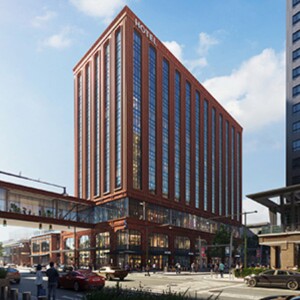
Sunday Aug 04, 2024
Sunday Aug 04, 2024
The footprint of the Indiana Pacers on the southeast side of downtown Indianapolis would roughly correspond with a size 6,329 athletic shoe. Gainbridge Fieldhouse actually is owned by the Marion County’s Capital Improvement Board, which owns most of downtown’s major sports and convention facilities. But there’s no doubt that its primary occupants are the Indiana Pacers and Indiana Fever, both owned to a large degree by real estate developer Herb Simon and his family. (FYI: Billionaire businessman Steve Rales has a minority stake in the Pacers.) But in recent years, the Simon family’s real estate holdings near and immediately adjacent to the fieldhouse have grown by leaps and bounds.
We’re beginning to see the outlines of a critical mass of hospitality and entertainment properties controlled by the Simons that could balloon to even greater size if the Simons are involved—as they are widely believed to be—in plans to bring a Major League Soccer team to Indianapolis. It would play in an arena to be built just a couple of blocks east of Gainbridge Fieldhouse, and almost certainly would use a large parcel of land recently purchased by the Simons.
IBJ reporter Mickey Shuey has been on top of these developments for several years and is the man who can help connect the dots. In his latest reporting, he has details on plans from the Simons to create a $300 million luxury hotel and concert venue complex directly across Pennsylvania Street from the fieldhouse. Shuey joins us for this week’s edition of the IBJ Podcast to take stock of the Simons’ current and planned investments and how they could form a cohesive entertainment and hospitality ecosystem on downtown’s southeast side.
The IBJ Podcast is brought to you by Taft.
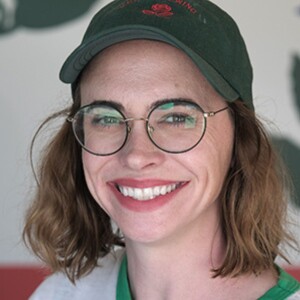
Sunday Jul 28, 2024
Hotly anticipated eatery Borage debuted in June. So how’s it going?
Sunday Jul 28, 2024
Sunday Jul 28, 2024
The debut of the Speedway eatery Borage in June was one of the hottest local restaurant launches in recent memory, covered by most of the major media outlets in the Indianapolis market—including IBJ. Its co-creators—Josh Kline and Zoe Taylor—had won considerable acclaim as chefs for nationally lauded Milktooth in Fletcher Place. The concept for Borage was unique, combining a restaurant, a bakery and a market in one L-shaped building. And Taylor and Kline wanted to make a point of providing fair compensation for employees, guaranteeing at least $20 an hour.
IBJ’s Dave Lindquist outlined their plans—and the investment from a local real estate developer that made the project possible—in a story that ran on June 7. This edition of the IBJ Podcast follows up on how the business is shaking out after the June 12 grand opening. Zoe Taylor brings us up to date on what she and Kline have learned in the last six weeks about what’s working and what has needed tweaking.
As Taylor readily admits, running the financial side of a restaurant doesn’t come easy to them, so perhaps their biggest challenge has been learning how to budget and make the business sustainable. Borage hasn’t been profitable right out of the gate, and Taylor and Kline realize the timeline for profitability for a small independent restaurant typically stretches many months. For the time being, they're opting not to take salaries.
The IBJ Podcast is brought to you by Taft.

Monday Jul 22, 2024
Pete the Planner on the impact of interest rate cuts
Monday Jul 22, 2024
Monday Jul 22, 2024
The Federal Reserve has indicated interest rate cuts are coming after policy makers spent the past two years using higher rates to try to tamp down inflation. IBJ personal finance columnist Peter Dunn, known to many readers as Pete the Planner, talks in this week's podcast about how reduced rates will stoke the economy as businesses and consumers start spending and investing.
Dunn explains why "people make really dumb decisions" when interest rates fall and consumer confidence rises. And he explains what might be a better option.
Dunn also references his "power percentage" calculation, which he has written about in the past. You can read a column about the power percentage here.
The IBJ Podcast is brought to you by Taft.
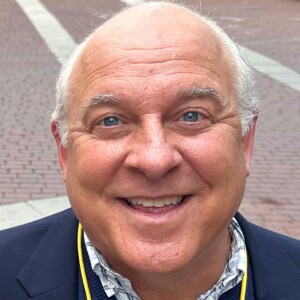
Sunday Jul 14, 2024
Indy to host rare Catholic gathering bringing tens of thousands of visitors
Sunday Jul 14, 2024
Sunday Jul 14, 2024
More than 50,000 Catholics from across the United States are set to arrive in Indianapolis this week for the church’s first national gathering in more than 80 years, marking one of the most significant religious events the city has ever hosted. The National Eucharistic Congress, scheduled for Wednesday through Sunday at the Indiana Convention Center and Lucas Oil Stadium, will feature church services, speakers, presentations, religious sacraments, exhibitions, concerts and live podcasts. As mainstream religions continue to lose followers, this event will be laser-focused on one of Christianity’s foundational sacraments—the Eucharist, otherwise known as Holy Communion or the Lord’s Supper. It also will stage one of the most conspicuous outdoor public gatherings in Indianapolis’ recent history, outside of the Speedway: a mile-long procession through downtown that could be attended by as many as 50,000 people.
Our guest this week is Ken Ogorek of the Archdiocese of Indianapolis, who discusses the revival and purpose of the Eucharistic Congress after an 83-year absence. We also hit on the ways this event is different from many of the religion conferences and annual meetings that Indianapolis hosts and how local organizers are providing accommodations for participants with a variety of needs. And we delve into how church leaders will evaluate the impact of the congress once the attendees are gone.
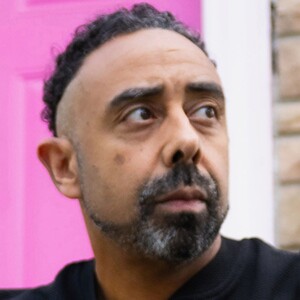
Sunday Jul 07, 2024
Artistic director banks on broad vision for fledgling Black theater company
Sunday Jul 07, 2024
Sunday Jul 07, 2024
Our guest this week is Ben Rose, a longtime creative force in the Indianapolis arts community who recently was named the inaugural artistic director of the fledgling Indianapolis Black Theatre Co. If you want to think about it as a startup, the theater has a long runway thanks to a campaign that raised $1.5 million dollars. Part of Rose’s job as artistic director will be to establish revenue streams that can maintain momentum once that first round of funding runs out
Rose has several outside-the-box ideas for supporting the company while serving the careers of company members both on and off stage. They’re influenced in part by a varied career that took him to Atlanta and Los Angeles for significant periods of time, as well as his professional experience in several artistic modes, including stage acting, writing, videography, filmmaking and photography. And he has learned to see the world through several lenses due to his unusual upbringing as a mixed-race child from Indianapolis who was adopted by a white family at a very early age and grew up in relatively rural Tipton.
In this week’s episode of the podcast, Rose discusses how he forged a career in the arts through what he calls fortunate, back-door opportunities and developed his vision for how Indianapolis Black Theatre Company can sustain itself while helping its members find work in other venues. He also delves into the group’s first official production which has something to say about taking professional risks in places where you might not have felt welcome in the past. It’s a staged reading of a play about a groundbreaking black woman who became the first professional female baseball player as a member of the Indianapolis Clowns in the previously all-male Negro Leagues.
The IBJ Podcast is brought to you by Taft.
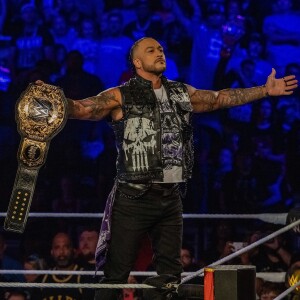
Monday Jul 01, 2024
The inside story of WWE’s blockbuster deal for three events in Indy
Monday Jul 01, 2024
Monday Jul 01, 2024
WWE and the Indiana Sports Corp. announced a first-of-its-kind agreement last week that will bring three of pro wrestling's top events to Lucas Oil Stadium over the next eight years.
The deal means Indianapolis will host "Royal Rumble" on Feb. 1, 2025, and then “WrestleMania" and “SummerSlam” in the years after.
This week on the podcast, we’re giving host Mason King a break and turning the podcast microphone over to IBJ arts reporter Dave Lindquist. His guest is our own Mickey Shuey, who – among other things – covers tourism and the business of sports for IBJ.
He's got the latest on the WWE deal—including the history that led to the impactful agreement.
The IBJ Podcast is brought to you by Taft.
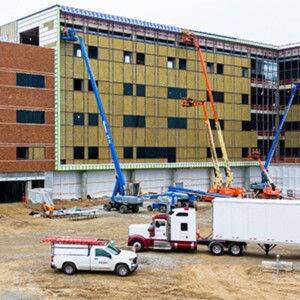
Sunday Jun 23, 2024
Sunday Jun 23, 2024
Over the last four decades, residents of Hamilton County have amassed a wealth of options for hospital care. The county is already home to 11 acute-care and specialty hospitals with a total of nearly 800 beds—while many Indiana counties have no hospitals, or a single facility with less than 50 beds.
Some consumer advocates say the hospital systems are chasing business in the suburbs, where household income is high and residents have generous health insurance packages, while curtailing or closing hospital services in less prosperous, more rural parts of Indiana. Several of the health systems say they are simply following the market and providing health care where the population is growing the fastest.
The latest entry into the Hamilton County market was announced this month: Community Health Network says it’s planning to open a $335 million campus in Westfield, which would make it Community’s first hospital facility in Hamilton County. As the guest on this week’s edition of the podcast, IBJ health care reporter John Russell is using this opportunity to take stock of the county’s hospital marketplace, what’s behind the boom, and to ask what’s prompting this additional growth.
The IBJ Podcast is brought to you by Taft.

